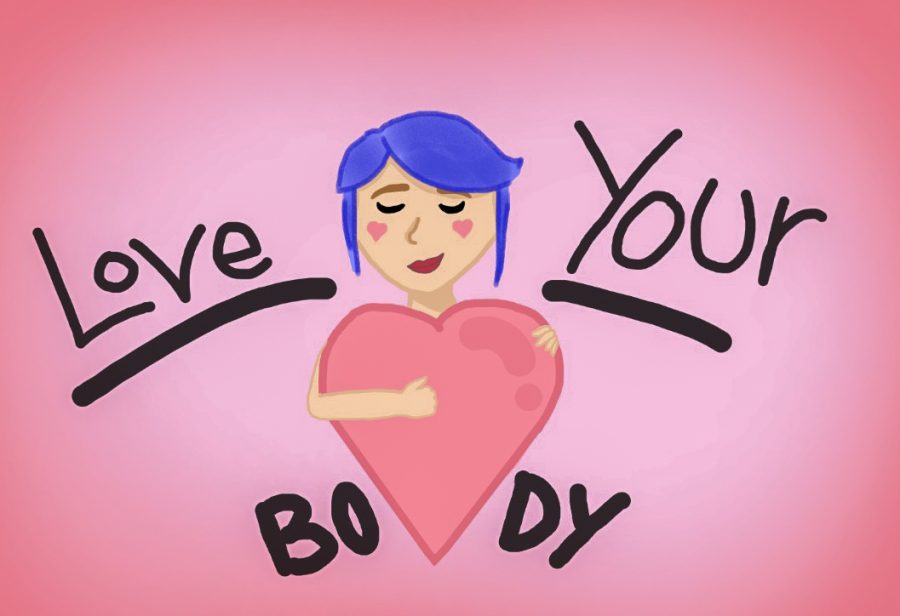OPINION: Research before you try a diet
Don’t go for the newest diet people are talking about, just eat healthier foods instead
LAUREN PETTIT | DAILY EVERGREEN ILLUSTRATION
Move over paleo, these diets don’t solve the issue of being a healthier person. Instead focus on foods that are healthier and cutting calorie counts to achieve a healthier lifestyle for yourself.
March 2, 2020
There are so many options when looking for a new diet plan. There is keto, vegan, intermediate fasting, vegetarian, paleo, detox or juice cleanse and much more to choose from. These diets are trendy and unhealthy.
“Fad diets often lead people to believe that there is a one-size-fits-all diet, and this is ‘the one.’ The secrets out — there isn’t one perfect diet for all of us,” said Lauren Keeney, a registered dietitian nutritionist and the owner and operator of Integrated Health LLC located in Moscow.
College is a colliding environment of lack of money and energy. When a student is lacking money, it is easier to buy staple items. These items look like ramen, canned veggies or soup and anything else that can be found at a low price. These low-price items are high in cholesterol and fat and they lack many of the key nutrients that are needed in a balanced diet. Low-cost foods also increase weight gain and fatigue.
It can come as no surprise that many college students are hopping on diet trends to lose weight fast, in the high stress and low energy environment. These fad diets are used to change a student’s look, weight and energy level.
“I have done every diet you can do, from keto to fasting,” said Hannah Bidon, a WSU junior majoring in nutrition and exercise physiology and minoring in psychology.
The diet is a quick fix that can have little to no effect on a student’s daily eating habits.
“In my experience, I gave up and I couldn’t do it. This was because it was unnatural for my body,” Bidon said.
Starting a new diet can be exciting at first. Eventually the diet will come to an end, leaving the body feeling unhealthy and overall useless. Cutting out key components to a diet can harm the body.
“Eat foods that your body craves and foods that make your body feel good, energized and satisfied. This means, eat what you enjoy and enjoy what you eat physically, mentally and emotionally,” Keeney said.
Cutting out just carbs and fat can affect the body. Unless there are dietary restrictions or religious guidelines, an individual should provide their body with all food groups.
The students that want to change their diets for ethical and environmental reasons are very different from those who want to lose 10 pounds in eight days. They try the new diets of detox, juice cleanse, one large meal a day, keto, paleo and much more. There are fewer extreme ways of dieting and healthy choices.
Diets come to an end and so does that “healthy eating.” Many times, the diet trend does not change an individual’s overall eating habits or relationship with food.
“In the end I gained the weight back or felt unhealthy after the diet,” Bidon said.
Diets don’t last forever, it is easier to make life changes.
“What many young adults lack in their diet is having a healthy relationship with food,” Keeney said.
The best advice I was given was to balance the plate. Have all the food groups represented on the plate. Fruit and veggies, grain (bread, potatoes and more), protein (fish, eggs, tofu and nuts) and dairy (milk, yogurt and cheese).
“Add more color to your diet, this way you can ensure you’re getting a variety of nutrients to support your overall health,” Keeney said.
Students can add nutritious and need food groups by adding in diverse veggies and sides to their main dish.
Take top ramen, for example. Overall it is not healthy. But it is cheap, so it is a staple in any student’s dorm, apartment, or house. It can be made healthier by adding a protein (I like an egg or two) and some green veggies. It not only looks more appetizing it can be more nutritious and filling.
Why even diet when it can end in gaining the weight back? I suggest making little healthy changes that can improve overall attitudes towards food. Little changes can make a big difference.










